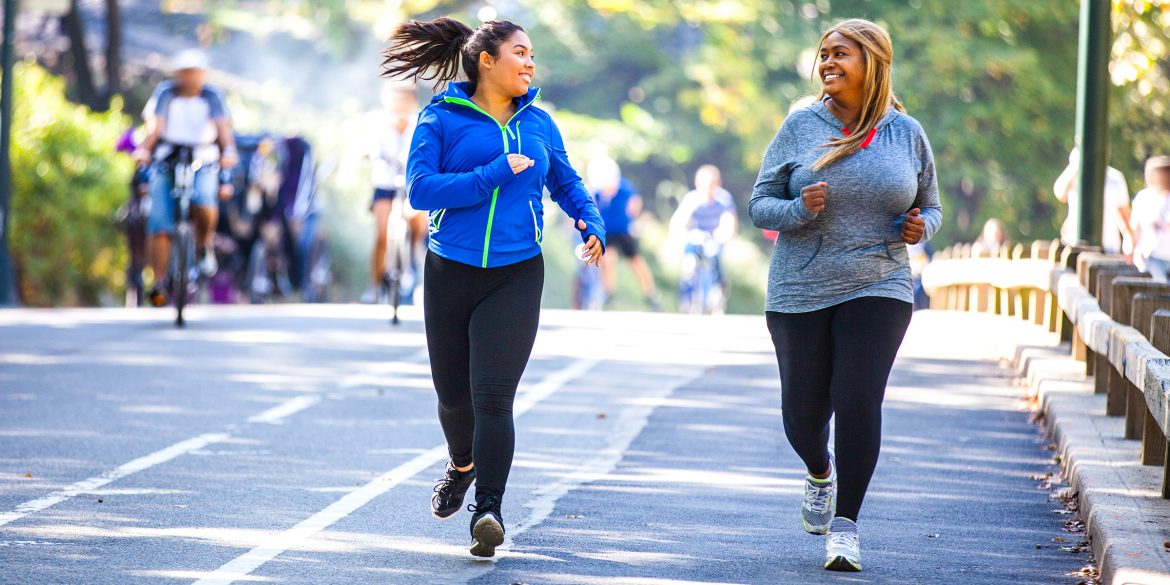Running consumes calories and can assist you with getting more slender, yet you shouldn’t go overboard. In the event that you get carried away, you can get harmed, which will make your mission to shed pounds considerably more troublesome. The key is to figure out a perfect balance between something over the top and excessively little.
Accomplishing Negative Energy Balance
Getting thinner can appear to be a daunting struggle. Exercise and diet are the enormous things you have some control over. Changing each can assist you with consuming a larger number of calories than you require every day. At the point when you consume a bigger number of calories than you consume, you enter a state known as “negative energy balance.”
You can’t get more fit except if you’re in a negative energy balance, so that is truly significant to remember while you’re deciding the number of miles to run each day. While this action assists you with consuming calories, decreasing your food consumption adds to a negative energy balance too. On the off chance that you eat clean and watch your bits, you don’t have to depend entirely on practice for weight reduction.
An examination paper distributed in the August 2016 issue of Obesity Reviews contrasted a calorie-limited diet with high-impact workouts, such as running. The eating routine was, by and large, more viable for weight reduction, yet practice assisted subjects with losing more fat around their organs.
The quantity of calories you consume while running relies upon many variables. The main element, by a wide margin, is the manner by which hard muscles are working, as per a June 2017 survey distributed in Frontiers in Physiology. As the scientists note, how much energy that muscles use during a run decides the number of calories that are scorched, and elements like orientation aren’t as significant.
Calories Burned From Running
A central point in how hard your muscles work is your body weight. The more you gauge, the more work your body needs to do to push you forward. Harvard Health Publishing gauges that the energy consumption of a 125-pound individual running an eight-minute mile is 375 calories. That number goes up to 465 calories assuming they’re 155 pounds and 555 in the event that they’re 185 pounds.
The speed at which you run and the slope matter also. A little report distributed in the October 2019 release of the Journal of Sports Sciences has found that running on a grade enacted leg muscles to a more noteworthy degree than running on the decay slant, prompting a higher expansion in the number of calories consumed. That is the reason you really want to consider something beyond the all-out number of miles you’re running.
Another variable that might influence how hard you’re functioning is the surface you run on. One more little review distributed in August 2016 in the Journal of Sports Sciences proposes that running on a stiffer treadmill might increment energy consumption.
Your strategy can likewise assume a part, as per a little report highlighted in Medicine and Science in Sports and Exercise in July 2017. Specialists have found that twisting at the knee and hip really during a run made the subjects utilize more energy. This is valuable for sprinters who need to be more energy-effective.
Be careful with Overuse Injuries
Running until you get in shape probably won’t be the best system. Abuse wounds are incredibly normal among distance sprinters. A May 2018 review distributed in the American Journal of Sports Medicine found that throughout the span of a year, 66 percent of sprinters supported no less than one injury.
Ladies and those with higher body loads who partook in the above study were bound to be harmed. The possibilities that you get injured from running are genuinely high and assuming that occurs, you will be unable to practice for weeks or months. Hence, it’s shrewd to add different types of activity to your daily practice and participate in broadly educating.
Adding obstruction preparation, yoga or high-impact exercises like swimming to your exercises might decrease injury risk. This technique removes a portion of the pressure of running and allows your body to recuperate. You actually consume calories while you do different types of activity, and you can reinforce various muscles that running connects less significantly.


